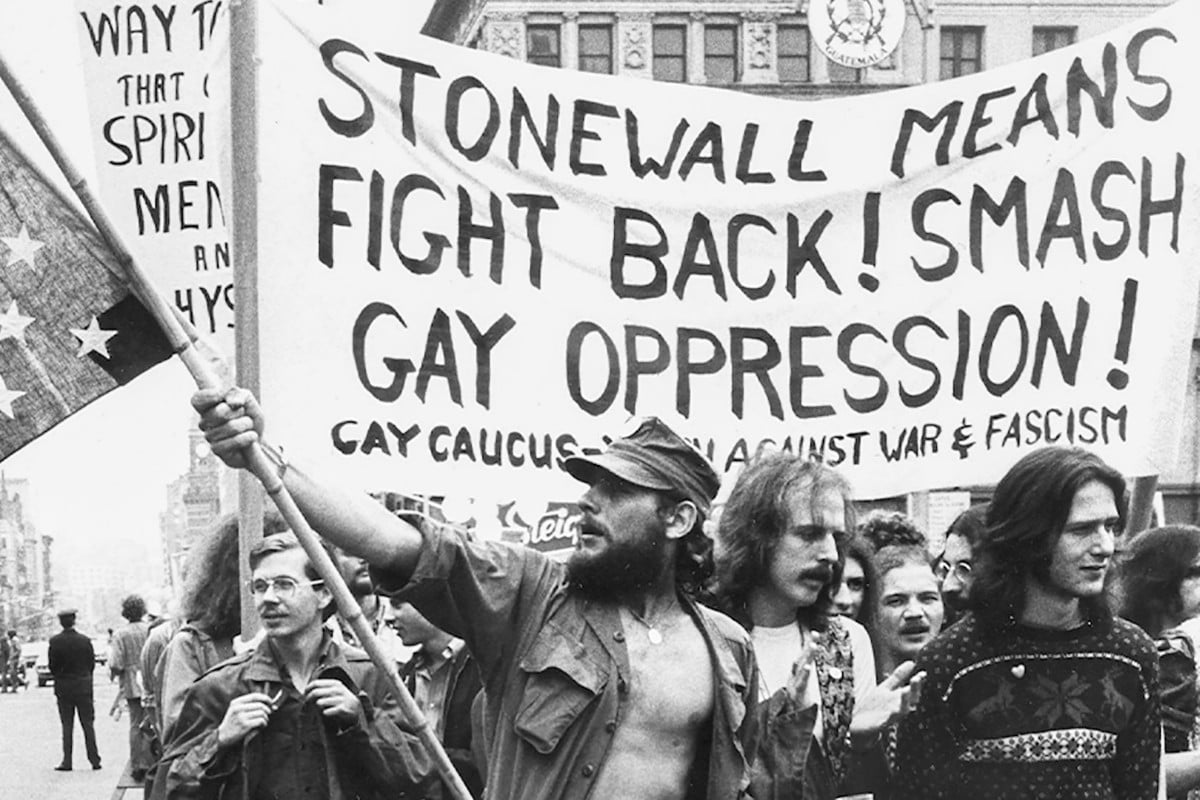The Stonewall Riots happened more than 50 years ago. On one particular night, June 28th, 1969, the Stonewall Inn became a symbol of resistance, and started the LGBT movement. In the 1950s and the 1960s, movement for gay rights and gay activism was in the low stages. But thanks to the Stonewall Riots, the gay movement gained momentum, and thus began the gay liberation movement.
In the 50s and 60s, Americans faced an anti-gay legal system. Police often arrested them for drinking alcohol. There was even a law prohibiting clubs from serving alcohol to known homosexuals. In the early years of the 1960s, gay movement favored non-confrontational education. But all of that changed on June 28th, 1969.
The Police Raid
What happened in 1969? It all started when two plainclothes policemen in dark suits, two partrol officers in uniform, and two inspectors arrived at the Stonewall Inn and announced “Police”. Stonewall employees were usually tipped off for a raid. Back at the time, gay clubs were owned by the Mafia, and they often got tips when their locals were being inspected by the police force.
However, on that particular night, they were not tipped. There was a rumor that a raid was to occur, but nothing to panic.
As the police entered the bar, they started checking for identification from customers, particularly men dressed as women and women dressed as men. The standard procedure at the time was to line up the patrons, and check their identification. After that, female police officers took customers to the bathroom to verify their sex. Men dressed as women would be arrested. But that night, the raid did not go as planned. Men dressed as women refused to go with the officers. They began to refuse their identification.
At that point, the police officers decided to take everyone to the police station. A sense of discomfort spread very quickly, and there is no known record who and how started the riot. But all of a sudden, glasses and bottles started flying around. The crowd, most of whom were homosexual, had grown ten times the number of people who were arrested.
The police tried to restrain the crowd, but it escalated quickly. Soon after, the initial 8 police officers were actually trapped in the Stonewall Inn. They were afraid to get out, since protesters might attack them. The New York City Police Department had to send the Tactical Patrol Force to free the officers trapped inside. The fun was over, but it was a crucial moment in homosexual movement. There were riots before, but no group had ever forced cops to retreat before.
Legacy of the Stonewall Riots
While the riots lasted shortly, their legacy is enormous. On the anniversary of the Stonewall Riots, a 51 block march began in New York, with simultaneous Gay Pride marches in Los Angeles and Chicago, and they are considered the first Gay Pride marches in the US history. The next year, cities like Boston, Milwaukee, Dallas, London, Paris, Stockholm, and West Berlin joined in.
Within two years of the Stonewall riots, there were groups in every major American City. People who joined the organizations had very little in common. Their only similarity was the same-sex attraction. It is worth noting that in the first years of the movement, race, gender, class, and ideology became obstacles.
With that in mind, Stonewall soon became a symbol of resistance to social and political discrimination. It inspired solidarity among homosexual groups for decades. They might not have initiated the gay rights movement, but they served as the catalyst for a new generation of political activism. Some organizations that formed after the Stonewall riots include GLAAD, Human Rights Campaign, OutRage, PELAG, and Queer Nation.
Police Commissioner Apologizes for the Events
On the 50th anniversary of the Stonewall Riots, current New York Police Department Commissioner, James P. O’Neill, apologized for the 1969 raid. He said the following:
“What happened should not have happened. The actions taken by the NYPD were wrong, plain and simple. The actions and the laws were discriminatory and oppressive, and for that, I apologize.”



